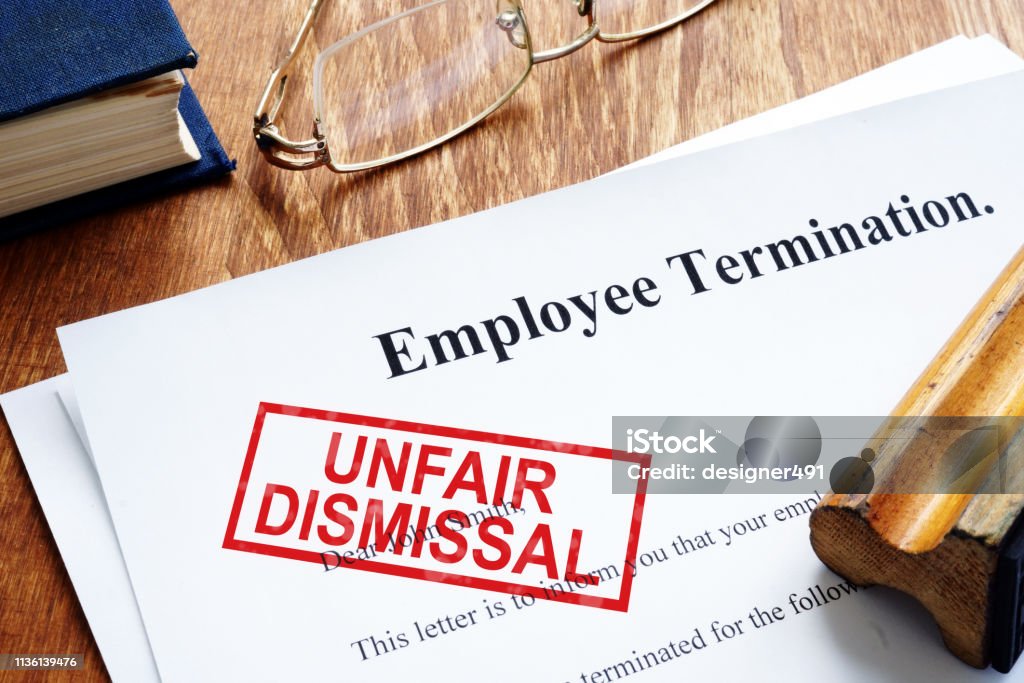Victor Ngaruiya, Researcher
This weeks’ Alert is premised upon the case of Jackline Koin vs The Governor , Kajiado county and Another ELRC No. E52 of 2023. In this case, Jackline Koin woke to a rude awakening on 22nd June of 2023 from a Facebook post announcing her job termination. The post came from the then Kajiado county Governor ,Joseph Ole Lenku. In effect, the petitioner had been dropped from her position as the County Executive Committee on Trade, investment and Enterprise Development and replaced with another person. About a month after the purported Facebook termination, she was summoned to the Governor’s office to collect her termination letter.

Was the Governors’ action Justified in law…
The Governor in response, deposed that the Petitioner had refused to report to her new office having been redeployed to the Department of Trade, Investment and Enterprise Development. The Governor relied on Article 132 of the constitution and specifically Section 31(a) of the County Governments Act on the grounds that he was protecting and preserving the interests of the people of Kajiado.
The impugned Section 31 (a) provides that a Governor may dismiss a County Executive Committee member at any time, if the Governor considers that it is appropriate to do so. Further, the Governor deposed that no notice nor a disciplinary meeting was required before the dismissal of the Petitioner. This was attributed to the reading of section 31(a). Therefore, the Governor was under no legal obligation to disclose the cause of dismissal nor to assign reasons for his actions.
Courts interpretation of Section 31(a)

In the case of County Government of Nyeri and Another Vs Cecilie Wangechi Ndungu (2015) KLR The court of Appeal sitting at Nyeri had held that , County Executive Committee members are individually and collectively accountable to the Governor in the exercise of their powers and performance. Where such confidence is lost, the Governor can remove such a member. However, the same court added a caveat that the said power ought to be valid and compelling or else the Governor will use it to suit his personal interests.
The same Section will later be discussed in 2020 in the Court of Appeal case County Government of Garissa and Another Vs Idris Aden Muktar. Where the court of Appeal held that the current Kenyan Constitution has not specifically entrenched the Pleasure Doctine among state officers.
Therefore the court was of the view that the appointment of state officers must be insulated from political or any untoward interference.
True to this end, this position was applied in the matter before discussion as the ELRC court held that the failure to give the petitioner notice of termination, an opportunity to explain herself and ommission to assign any reasons to the summary dismissal, rendered the Governors’ action unlawfull and unfair from the start.
What amounts to fair and unfair termination of Employment?

Notably, the Employment Act, does not outline what are the fair reasons for termination but rather lists what does not constitute fair reasons for termination in Section 46 to include:
1.Employees’ pregnancy,
2.Leave,
3.Membership of a trade union,
4.Participation in the activities of a trade union outside working hours or with the consent of the employer, within working hours,
5.participation in a lawful strike,
6.initiation of valid legal proceedings against an employer,
7.an employee’s race, colour, tribe, sex, religion, political opinion or affiliation, national extraction, nationality, social origin, marital status, HIV status or disability and
8. failure to withdraw from a trade union
Grounds that constitute a good cause for termination of employment

Some of the grounds that constitute good cause for termination of employment under section 41 of the Act are: poor performance; physical incapacity; and gross misconduct.
From existing legal pronouncements, poor performance places a higher level of proof on the employer. For instance, the Court of Appeal in Jane Samba Mukala v Ol Tukai Lodge Limited Industrial Cause No. 823 of 2010(2010)LLR 255 (ICK) observed as follows:
“…The employer must show that in arriving at the decision of noting the poor performance of an employee, they had put in place an employment policy or practice on how to measure good performance as against poor performance…It will not suffice to say that one has been terminated for poor performance as the effort leading to this decision must be established.” Correspondingly, on the physical incapacity ground, in a recent Judgement delivered on 29th June 2023 in Ojung’a v Healthlink Matcare Ltd t/a Nairobi Women Hospital Cause 1620 of 2018) [2023] KEELRC 1607 (KLR) the court held that Dismissal on medical grounds is not the same as dismissal on grounds of physical incapacity.
By the same token, Courts have categorically determined that the Employment Act does not provide for dismissal of an employee on medical grounds. What the Act actually provides for is termination on grounds of physical incapacity. As such an employer must conduct medical assessments to determine whether an employee is incapable of performing their duties. This means termination on the ground of physical incapacity must be preceded by a medical assessment as was aptly applied in Gichuru v Package Insurance Brokers Ltd (Petition 36 of 2019) [2021] KESC 12 (KLR) (22 October 2021) (Judgment)
Access the Alert in PDF format from the link provided below.

